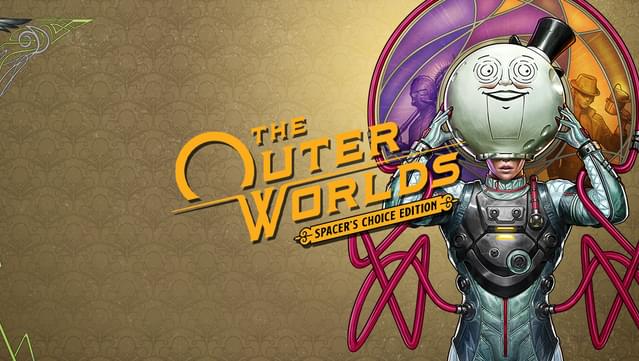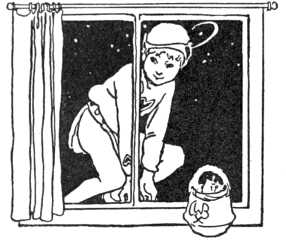
In 1937, Sir James Matthew Barrie, author of Peter Pan, died. 16 years later, Disney’s Peter Pan was released in theaters. This is written as if J.M. Barrie saw that film and wrote his exact thoughts on it.
Based loosely on “How does it feel to turn 100? Ask Winnie-the-Pooh by David Orr
To the Editor,
In being tasked now with committing such strange events as these to paper, I know not where to begin; yes, it seems to me now that up is down and down is up.
The theatre from which I saw the picture of Peter Pan was not as the picture houses are now. I say now, but really I know not what time this is to be published, nor what time it is as I am writing it: I seem to have one foot in the hack and one foot in the automobile, and neither foot is quite sure.
Still, write I must, as the pen and page plaintively beg me to do – they stand so open, you see. They beg, surely, for me to say in exact terms my thoughts on the picture I saw in that neon-coated theatre in the year of 1953 (I will tell how I learned the year anon). The problem I find now is thus: I cannot say in exact terms what my thoughts on that film were.
Yes, I am moved even still in strange ways by those colourful images I saw dancing across the gay theatre screen of a time and country not my own; I say strange because they bring me neither pleasure nor disgust, though I think if I must choose it is the latter, rather than the former. But really, it is somewhere in the in-between.
I am now reminded by my amanuensis – if in truth I had an amanuensis – that the in-between is where Peter likes the best. But still, I am not sure whether the boy I saw to-day flying on the proscenium screen would be recognised as that elusive boy were he not given the same name. Yes, he had neither the accent of Pan, nor the gait of Pan, so that I have thought some of those artists had made Peter Pan, and not made him well, they imitated him so abominably.
But, perhaps I must now make as the fisherman and reel myself back to the reality of the situation. That is, if there is any reality in the situation; it is unclear to me still, though I am writing of it now quite as if it really happened. The reality, it seems, does not matter at all; I wish, for those that try to make the truth of it all, that it did. But the simple truth – I recognise in this the incongruity – is that it does not.
In this instance the reality bent and decided that I stood outside an American theatre twenty years past my death, waiting with pipe in one hand and pocket-book in other, to see the Disney Cartoon picture of Peter. My last memories from before this, I suppose, are not the dirt but the advertisements of Mr. Walt Disney’s Snow White.
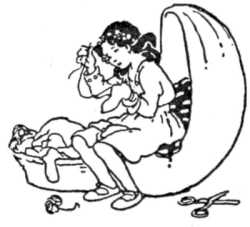
I never met this Mr. Disney, nor do I expect I will meet him any time soon, but what little I have heard of him I do not wish more to associate with such a figure as that. Though he seems certainly jolly enough, I think the knife from which he shaved at Peter shaved rather more than it should have done – so that his Peter lost some bone, throwing the guts across the floor to be picked up with little care or attention. His Snow White, of course, is perhaps a different story – though I am unsure if those German folk-lorists of which it was based would be happy with the changes he made to their little princess.
I am told now that Mr. Disney wished to create a Peter Pan film many years before he did; he planned, perhaps, to make it while I was still a mortal. Perhaps then, I could have had a say in the contents, but I am undecided. Nico says they would have listened to me, but Michael is far less convinced . Yes, Michael knows the ways of the world and of those American businessmen (outside of you, Mr. Frohman, for you I dedicate all my success), and knows those of that stock care more for taking of the idea that they are liable to miss the root.
Upon first arriving at the theatre, my guide, who said not his name nor his age but spoke in a strange form of English I know not the origin of, pointed out to me the poster for this Peter Pan. It was a rather gay poster, certainly colourful, though immediately noted was that the devil in Peter had gone altogether. I was disturbed, too, that this was Walt Disney’s Peter Pan. All these years I had been unsuccessful in netting that elusive boy; I hoped Mr. Disney had not gone to the Kensington Gardens and done it for me. I turned to my guide:
“What the deuce,” said I, though perhaps I said something rather stronger than that.
“What is it?” asked my guide, avoiding looking at me fully. I could not make him out, and I wondered if he could make out I.
“It is this poster, there is nothing of Peter in this poster, don’t you agree. There is a certain solidness to him in this, and those eyes… they do not speak as Peter’s eyes speak…”
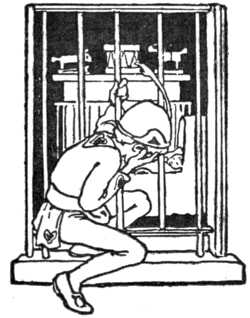
I could not think of how to describe the eyes then, but now I see. The eyes did not have those dreams behind them; the dreams like no other boy; the dreams that woke him shaking and crying. And there was nothing spectral of him, either, he was all boy and no bird. I wondered snidely if this Peter was psychopomp or if he shirked his duties.
It was at this moment the thought of asking how the film could be made without my knowledge crossed my mind. For I remind the reader that at this moment I knew not the year, nor that mortality had lost me.
“I say, it seems to me that if they were making a picture of my boy, they could have done well to tell me.”
“Oh, Mr. Barrie,” and now my guide began to laugh. It was one of those disgusting laughs, a bellow that rang from him as a fog horn, and I wished in this moment to take a sock to his mouth. But, I knew little of the world I was in, and he seemed vaguely more sure of it than I, so that I had reason to wish him stay.
“You do not understand, this movie (what a common phrase, movie!) is of the 1950s, you are long dead and so they didn’t need your permission to make it.”
I am not sure whether it was tone or content that annoyed me more, all I am sure of is what I said next. “I do not see why I have been brought along if I am nothing more to you than a thoughtless old coot.”
“Not old, you look absolutely glowing.”
I was not of the other sex, so did not sense why there was such a compliment. I think, now, he was simply stating fact. That indeed, there was something of me that was glowing. I was perhaps, in this moment, as Peter or maybe even poor Mary Rose, though my situation was less dire than either. Still, perhaps it was more for I had no island to return to, it was merely darkness ever-after.
“If I am dead,” I said, though I little doubted him. “Tell me now something of absolute proof.”
“Your cough,” he said. “It is gone. I say you cannot even cough if you want to.”
I tried now to cough, and found he was right. I asked him how he knew such a thing as fact.
“It is because,” he said. “You have lost all organs except those that let you move and talk – coughing is a separate function from talking, spiritually speaking, so that it is not a necessity. You cannot get sick, so you cannot cough.”
It seemed logical, so from then on I would listen to my guide, and do whatever he said.
He ordered, in that angular accent we prescribe to Americans, that I enter the theatre and make my way towards the cinema-house, from which the picture was to be shown.
The film began which need not be written here, as it is implied from all that came before. But I have written it, and I do not wish to cross it out now – there is only the way forward for most of us, anyhow.
The opening scenes of the picture were very diverting, different from my Peter Pan, but I could not deny their simple excellence. Perhaps it was the colourful line drawings that filled the screen, or the simple way the story moved from point to point. It seemed to me that perhaps I was too quick to say anything of this film; however the arrival of that gay-devil changed quickly my mind.
This boy that I shall henceforth call Peter Pan, though it seems such a wrong name for him, looked rather older than expected, and spoke in a brash American. He said things Peter would not have the capacity to say, and became so deeply rude that it was not really Peter Pan I was watching but a boy in Peter Pan costume.
But I have spoken long already on what was wrong with that Peter Pan, what I must speak on now is Wendy herself. Yes, that central figure of whom we have allowed to wander into the pages and kept only because she was so sure-fire of herself. This Wendy is reminiscent of that little Darling – I recognise no pun, thank you very much – though she took of the same draught as Peter. Yes, this Wendy seemed to be there only as an annoyance, there was none of her maternal bravery – as in the after-meal rest on Marooners’ Rock, for instance. Which was absent, and along with it, her stand against the pirates.
There is nothing to say of the fairy Tinker Bell except that I see nothing strange in the portrayal, and that in a film that seemed so without that pulse of the stage, she kept all her life about her – and there was life added, too.
The Neverland was certainly colourful, however lacked that certain bloodthirstiness. It seemed to me the pirates could not murder Lost Boys; Tiger Lily and her men, too, seemed to have taken to comics more than the allowance of their role. But the biggest problem amongst all of them was Jas. Hook.
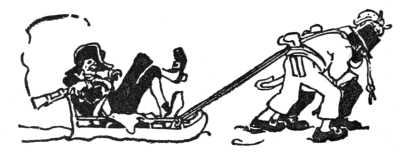
The Captain, whom I have grown quite fond of since his ‘Swarthy’ days on Black Lake, was neither villainous nor melancholic in Mr. Disney’s Peter Pan. He fell into the trap all too often fallen into by Hooks, in that he seemed more interested in his own humour than what he means to the children on the island. A villain this Hook was not.
Yes the pirates, as a whole, were rather more Gilbert & Sullivan than Treasure Island, a problem that has been poisoning Peter since before he drank from his first medicine draught…
Mr. Disney, I feel I am not reaching you as I really think I ought to; perhaps it would do better if I sent a letter. Yes! Here it is, an open letter to you, Mr. Walt Disney:
J.M.B.
4 Adelphi Terrace
Dear Mr. Walt Disney,
Mr. Disney, your work is quite effective; it is beautiful images for the sake of beautiful images. And for that I offer congratulations. As that most perfect author said, “let beauty awake for beauty’s sake.” However, there was little in the picture that truly stirred me, whether in absolute gaiety or sorrow, and none of the diverting pictures had the same effect as my play or novel of the same name. The building of the Wendy house, for instance, one of the favourite fantastical images, was absent entirely so that there was no question of death in the piece. It seemed, yes, that Peter could not die; it seemed also, that no one else could die – which takes away much of the drama. There was no instant where Peter felt as if he was to die – so we do not see how Peter deals with this sorrow of death with a brave smile. We do not understand Peter any deeper from watching your portrayal, and certainty much of Peter’s otherworldliness is lost. Wendy, it seems, can touch him – and does so very willingly, and Peter, for his part seems not confused by her but rather malicious. And Hook, too, does not die – rather he is sent into another comic chase; I recall now that eternal rule “The little less and how much it is.” This became caricature rather than character, simplicity rather than depth, and overt rather than subtle. There is neither the charm of O’Connor’s Peter Pan nor the sureness to the source of Miss Byron’s. If this is Peter Pan to all, then I am glad to say that my death allowed you to make this. I hope that in dying your work is not trampled on in some such ways as these.
– J.M.B.
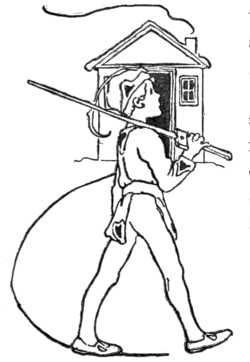
I did not see the film, really, I didn’t. It is this that I have avoided saying until now, but I must now admit freely. If I had, then there would be something in this, but I hadn’t so there is nothing. I never could have seen it, anyhow, for I am dead and have been for quite some time. Everything that has been said is not my words, it is the idea of my words, paraded around as if a lick of it is my own.
I suppose that is what Mr. Disney does too.
For Consideration,
J.M.B.





